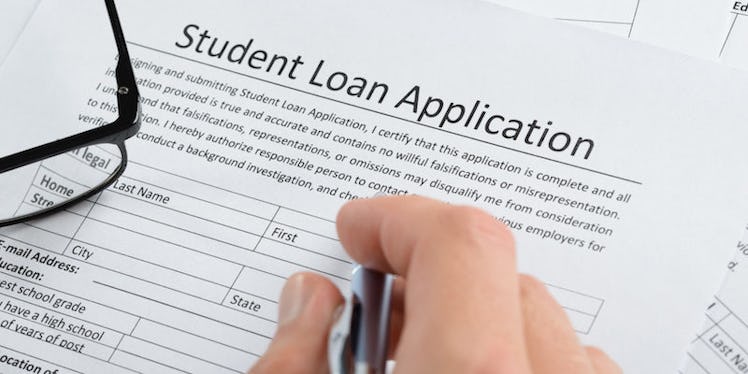Are you behind in your student loan payments? Welcome to the club.
According to a report in U.S. News and World Report, up to 17 percent of borrowers are missing payments or are in full-on default.
That 17 percent represents a fraction of the $1.2 trillion that is outstanding in student loans. Yes, that is a big chunk of money and it has become an issue in the current election cycle.
Is your candidate of choice saying anything about student loans?
Perhaps you're one of those dutiful borrowers who makes the minimum payment each month, but for some reason those numbers never look like they are going down.
Once again, you're not alone. Do any of these thoughts sound familiar?
What If I Just Walk Away From The Loan?
After making your loan payment and having only "pocket change" left over from your paycheck, you might be tempted to walk away from the loan.
Imagine what you could do with all that extra cash in your pocket. That will feel awesome in the short run, but you'll be hurting yourself when your credit score takes a nosedive.
Even though the idea of buying a new car or home could be years off in the future, you're still going to need good credit to make those kinds of loans. A bad payment history on your student loans will follow you for a long time.
Plus, there is always the risk of getting in trouble with the law. Yes, you could be arrested for failure to repay your student loan. Just ask this guy.
What Happens If I Lose My Job?
Even if you work in the family business, your job is not 100 percent secure. What if that business goes under? Without that dependable source of income, your repayment schedule can be upended through no fault of your own.
What happens if you lose your job? Your loans take a backseat while you get panic attacks over how you would pay all your other expenses, like rent, insurance, car payments, bottomless brunches.
First step, don't panic. Second step, learn about your options.
With federal student loans, you might be able to legitimately postpone some payments through a deferment or forbearance program. Just keep in mind that even though you might find temporary relief, those interest charges will still be racking up.
How Can I Get Rid Of Those Interest Rates?
When it comes to decreasing the amount of your interest rates, you have two options: Pay more or refinance.
Just making the monthly minimum payments will keep your credit history intact, but it won't be putting a serious dent in what you owe. That's because the interest payments are always taken out first and then the principle on the debt. Even tossing in an extra $50 can help chip away at the principal and lower what your monthly interest charges are.
The other option would be to refinance your student loan. Essentially, this allows you to move your loan from one lending institution to another, but for better rates. There might be a limit on how many times you can refinance so choose wisely.
Will I Have to Carry This Loan Forever?
Technically, yes. Until that debt is paid off, you'll be getting those monthly statements and reminders for payments. However, there is such a thing as loan forgiveness.
That can happen after several years (yes, years ... sorry) of a solid payment history. The Public Service Loan Forgiveness program can help qualified borrowers with their loans.
Think of this as the light at the end of the tunnel.
The ultimate goal is to land that killer job that will let you pay off your student loans. You might even find work with a company that will pitch and help make payments.
Time to put that great education to work.
